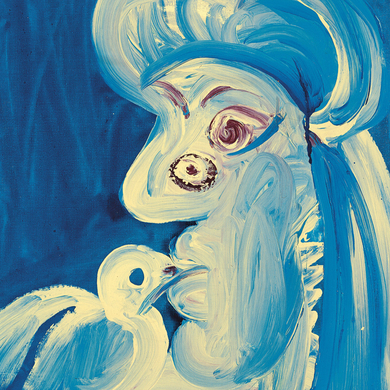Jainism is one of India’s oldest religions as well as its most rigorous. The name derives from the Sanskrit verb ji, which means “to conquer.” Followers aim to achieve enlightenment by conquering all earthly impulses. The origins of Jainism are murky. It is claimed that the religion is as old as time itself, and that its founder, Rishabhanatha, lived for 8,400,000 Purva years. Other academics argue that it originated in the 6th century B.C. as a reaction against the teachings of Orthodox Brahmanism. Today, there are only four or five million Jainists left in India. Unlike its sister religions Hinduism and Buddhism, Jainism and its ideals never gained traction in the West. This exhibition explores the religion’s history through manuscripts, sculptures, and ornaments. —Elena Clavarino
Arts Intel Report
Being Jain: Art and Culture of an Indian Religion

The First Jina Rishabha, India, Rajasthan, Candravati, 11th–12th century.
When
Nov 18, 2022 – Apr 30, 2023
Where
Etc
Photo: © Museum Rietberg



